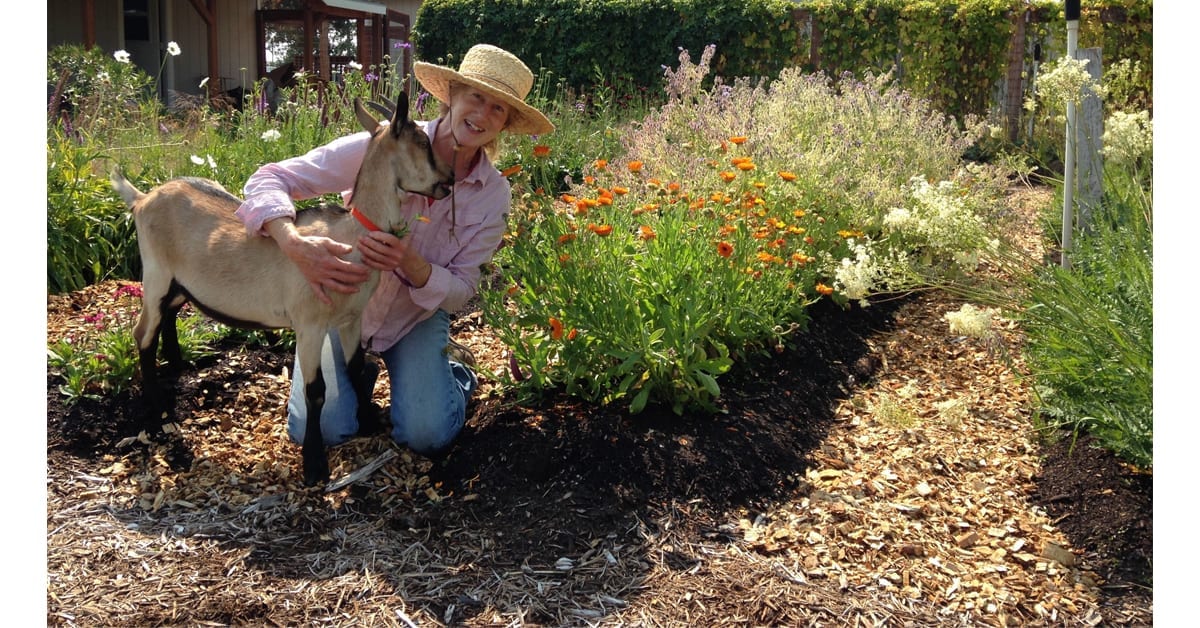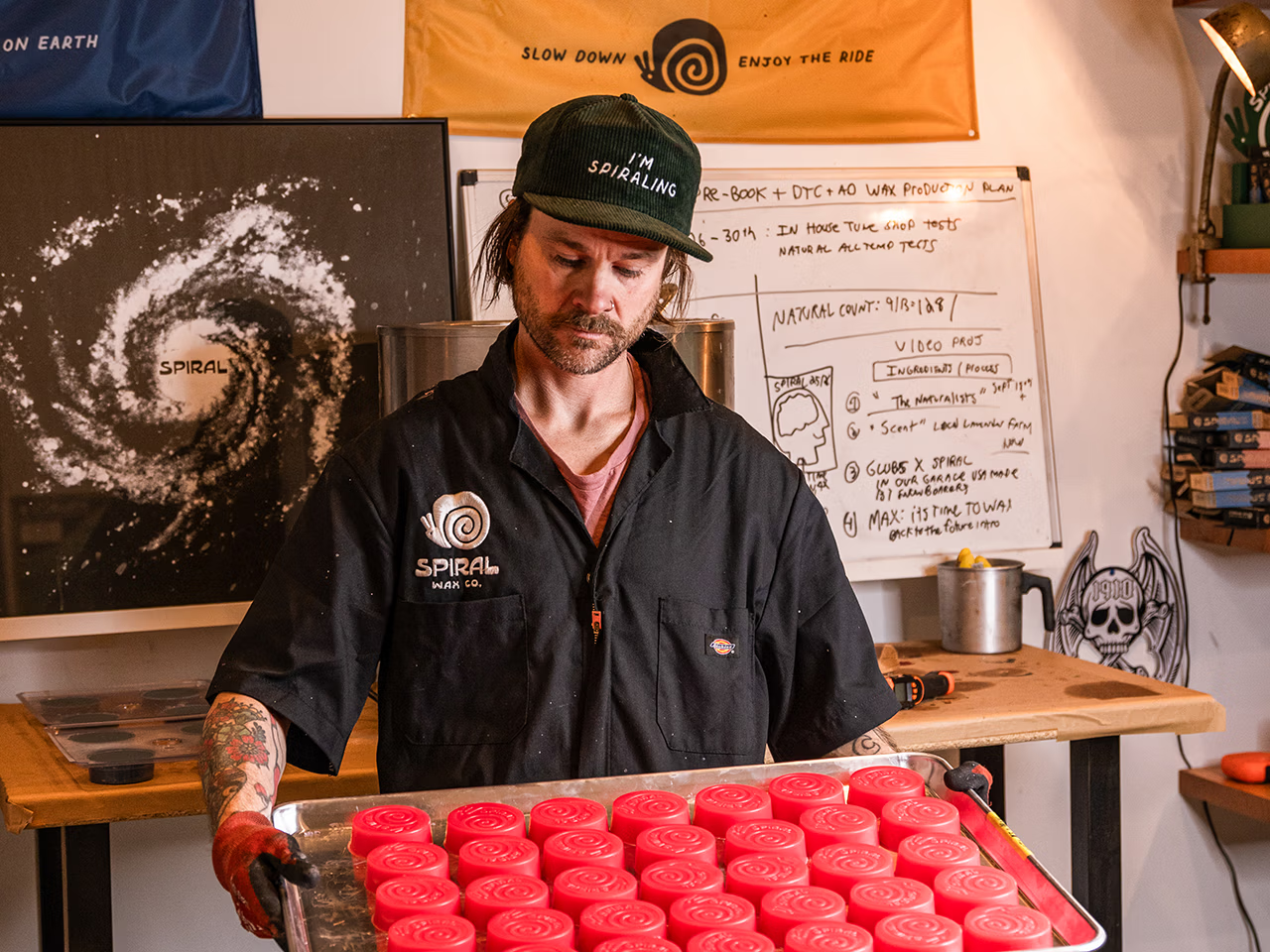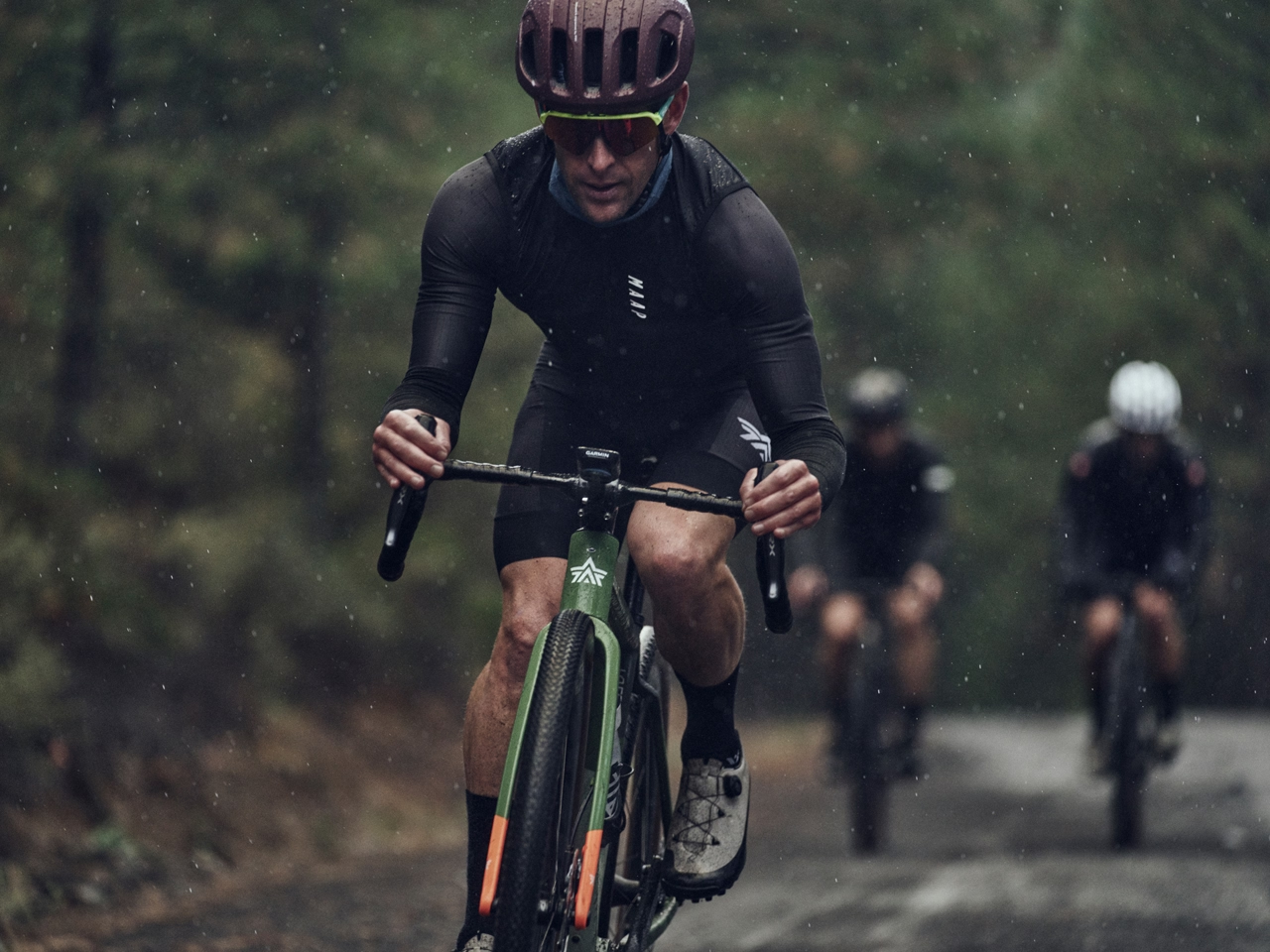Windflower Farm, an artisan farm on the edge of the high desert, swims against the current.
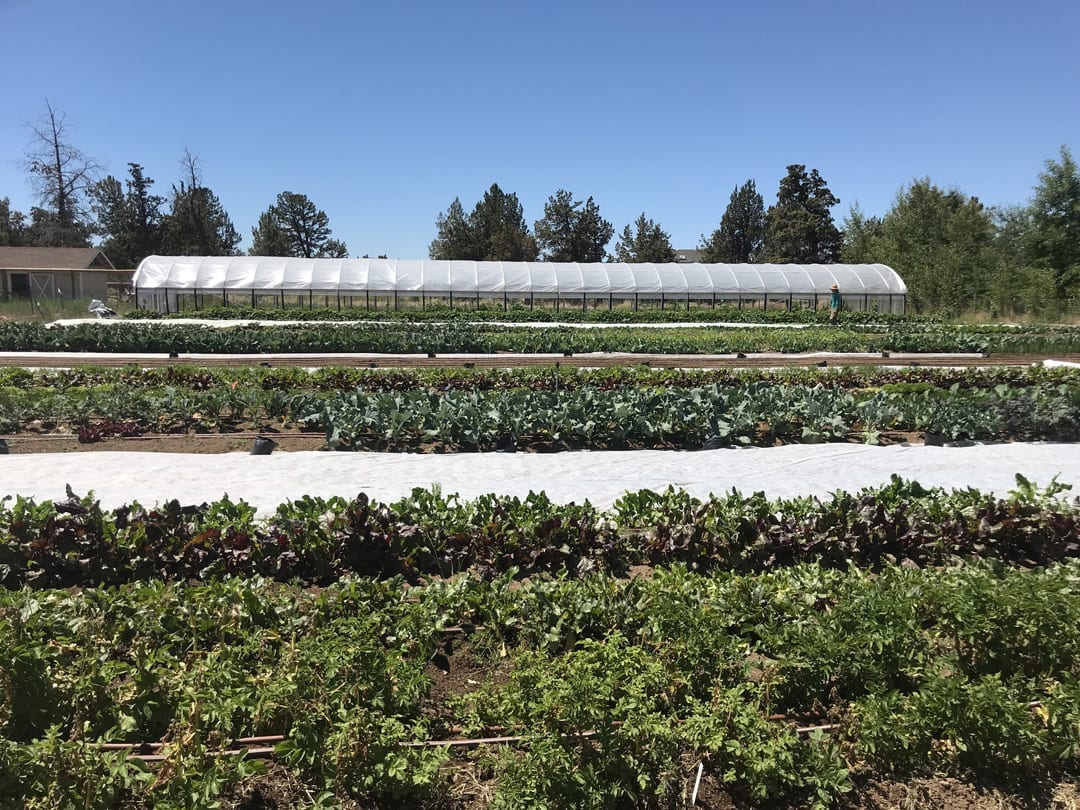
Spring at Windflower Farm in Alfalfa may appear much as it has for the past fourteen years, with a couple of thoroughbreds loping on twenty acres shared with hens, goats, honeybees, and planted with flowers. Here, at the edge of the Badlands about fifteen miles east of Bend, Gigi Meyer is considering her next move.
Since 2005, Meyer has poured her commitment to biodiversity into her land, creating a small-scale sustainable farm that has supplied stellar produce and eggs to some of the area’s best chefs and discerning consumers. It has also been a working classroom for area college students and aspiring farmers.
The animals provide fertilizer composted on-site, crops are rotated, and flowers are planted to attract insects that support a vibrant ecosystem before the blooms are sold to restaurants and boutique markets. The farm isn’t certified organic, but Meyer uses no pesticides, even those approved for certified organic farms. Meyer found that by continually caring for the soil, strategic seed selection and time-sensitive planting, she didn’t need any chemicals.
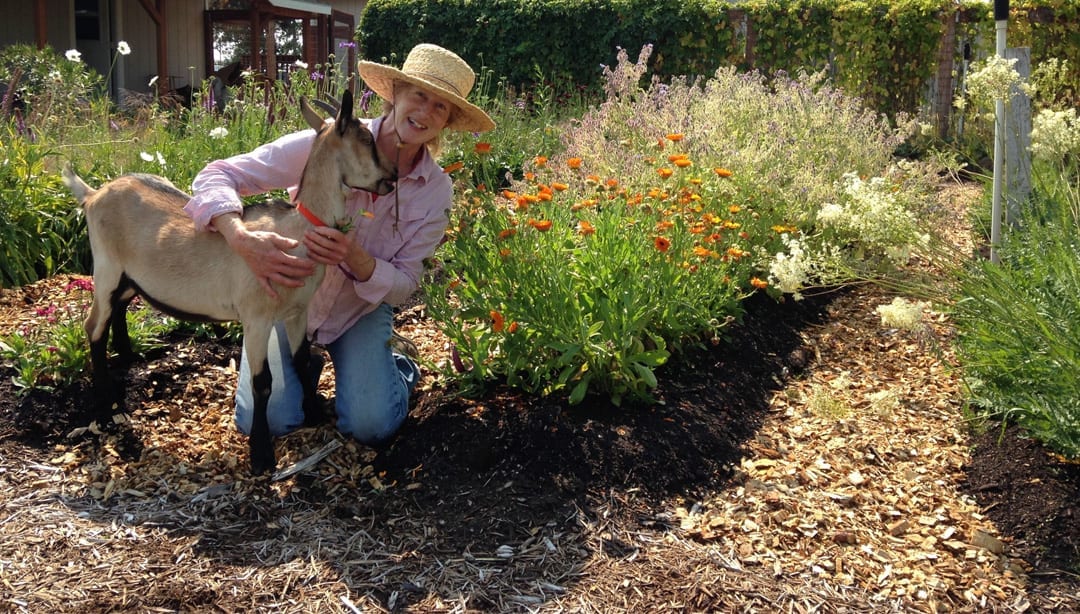
“It’s my own baroque artist thing—I bring it all in and distill it into a system that works,” said Meyer. “That’s my M.O., a microcosm of the natural process.” Meyer grew up on a ranch in Eastern Oregon, studied art at the New York Studio School in Manhattan, lived in Italy and trained racehorses in Southern California before returning to her home state.
Now, the farm is symbolic of concerns about Oregon’s agricultural future. The average age of Oregon farmers is 60, up from 55 in 2002. As farmers retire, more than 10 million acres—64 percent of Oregon’s agricultural land—will be sold. The potential change in use could massively affect Oregon’s economy, environment and food sources, which calls for thoughtful succession planning.
At age 60, after decades of intensely physical work and riding crazy, young thoroughbreds, Meyer is looking for a young farmer to take the reins. She wants to stay on the farm, but return to her earlier artistic pursuits, writing and painting. “I’ve built something that’s productive to society, the community, and the landscape. There are farmers like me all across the country, and I’m proud of what I’ve created.”
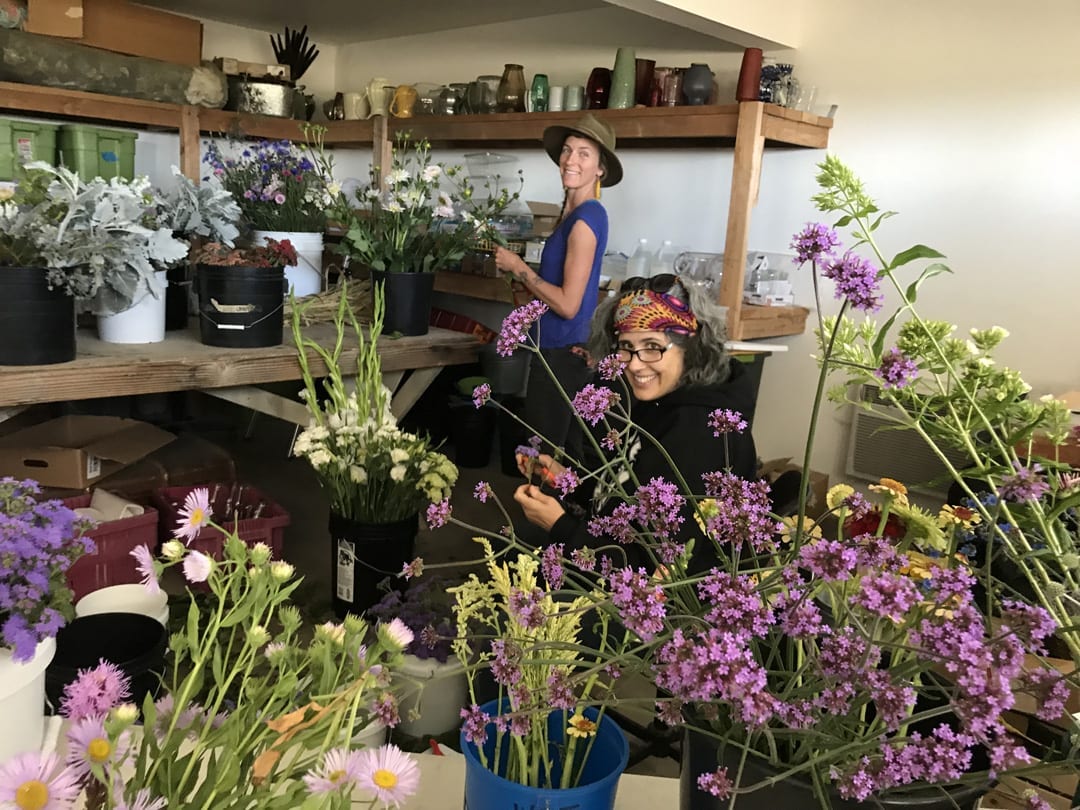
Others are, too. Owen Murphy, assistant professor of Health and Human Performance at Central Oregon Community College, said, “Windflower is such a valuable learning experience for my students because of how diverse it is—vegetables, flowers, herbs, milk and meat. It’s a wonderful example of smallscale, polyculture-based agriculture.”
Last year, Murphy brought his Sustainable Food Production Systems class there. “It was the dead of winter, but we helped weed, mulch and prep the beds for spring,” he said. “Then we gathered around for dinner with ingredients sourced from the farm. It was cold and dark outside, but full of warmth and conversation inside. Gigi helped the students understand some of the hard work and joy associated with small-scale farming.”

